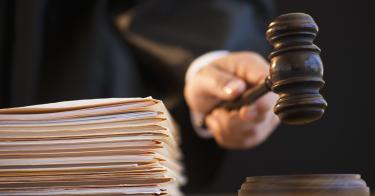Alexander Hamilton called it “peculiarly essential.” To Chief Justice William Rehnquist, it was “one of the crown jewels” of our system of government.
Today, however, judicial independence is increasingly a casualty of those seeking to enlist judges as political operatives.
In 2005, for example, Sen. Edward Kennedy, Massachusetts Democrat, said the most important issue regarding Chief Justice John Roberts’ nomination was “whose side is [he] really on” in certain cases. Kennedy would not vote to confirm Justice Roberts unless he disclosed, in advance, how he would decide cases.
Sen. Arlen Specter, Pennsylvania Republican, asked Justice Roberts how he would apply the U.S. Supreme Court’s criteria for overruling a precedent to Roe v. Wade. Like Kennedy, Specter simply wanted to know whose side Justice Roberts would be on in future abortion cases.
Today, Democrats do the same thing with a version of the question “do you still steal from little old ladies?” They ask judicial nominees whether a revered Supreme Court precedent such as Brown v. Board of Education was correctly decided. If the nominee takes the bait and answers, the precedent of commenting on precedent has been set. Senators move on to what they really want to know: Was Roe v. Wade correctly decided?
If the nominee declines to answer, senators and their left-wing allies put on their rehearsed pained expressions and let loose gasps of shock and horror. Only a closet bigot, they imply, would pass up an opportunity to publicly embrace Brown.
The problem is that this tactic is based on a lie, which brings us back to judicial independence.
For as long as they have appeared before the Senate Judiciary Committee, Supreme Court nominees have declined to provide personal or legal views, especially about matters potentially connected to their future judicial duties. Doing so, FDR nominee Felix Frankfurter told the committee in 1939, would be “inconsistent with the duties of the office for which I have been nominated.”
In 1955, Eisenhower nominee John Marshall Harlan said that “if I undertook to do so, that would seem to me to constitute the gravest kind of question as to whether I was qualified to sit on that great Court.” In 1981, Reagan nominee Sandra Day O’Connor was more specific, telling the Judiciary Committee that she could not “endorse or criticize specific Supreme Court decisions presenting issues which may well come before the Court again. To do so would result in my inability to do my sworn duty.”
Does that include really old or very popular Supreme Court precedents? In 1986, Reagan nominee Antonin Scalia declined to offer views on the mother of all precedents, the Supreme Court’s 1803 decision in Marbury v. Madison. He said: “I do not think I should answer questions regarding any specific Supreme Court opinion, even one as fundamental as Marbury v. Madison.” The Senate unanimously confirmed his nomination.
In 1993, Clinton nominee Ruth Bader Ginsburg explained why she and other nominees took this position. “A judge sworn to decide impartially can offer no forecasts, no hints, for that would show not only disregard for the specifics of the particular case, it would display disdain for the entire judicial process.” The Senate confirmed her nomination by a vote of 96-3.
And in 2010, Obama nominee Elena Kagan similarly resisted offering her views, saying “in particular, that it wouldn’t be appropriate for me to talk about what I think about past cases.”
Two political scientists looked at every Supreme Court confirmation hearing between 1955 and 2010, examining the subject of senators’ questions and the responsiveness of nominees’ answers. They found that Johnson nominees Abe Fortas and Thurgood Marshall were the most evasive. Who was Justice Marshall’s biggest defender in refusing to answer questions? Sen. Edward Kennedy.
How’s this for another irony? Judicial nominees are told that their appointment depends upon confessing whose side they will be on as judges. But if confirmed, they take the oath of office prescribed by federal law requiring them to disregard the identity of the parties and to discharge their judicial duties impartially.
Demanding to know, directly or by stealth, how a judicial nominee will decide cases or handle issues as a judge is a little like hiring umpires based on the teams they agree to favor during the upcoming season. It is a direct attack on the “peculiarly essential” and “crown jewel” of our system of government.
This piece originally appeared in The Washington Times



